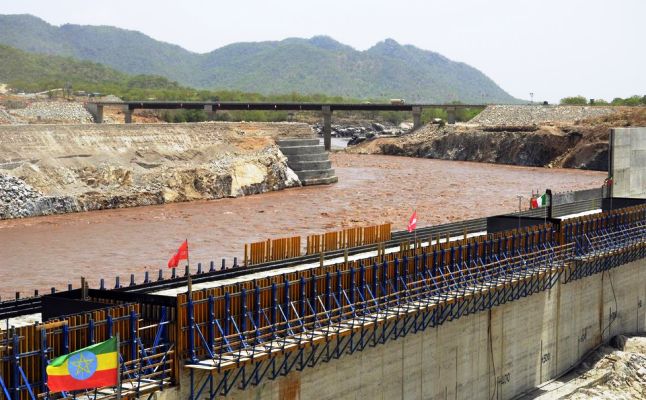Leaders of Sudan, Egypt and Ethiopia to discuss Renaissance Dam in Kigali

July 13, 2016 (CAIRO) – Sudan’s ambassador to Cairo Abdel-Mahmoud Abdel-Halim said that leaders of Sudan, Egyptian and Ethiopia are expected to discuss the Grand Renaissance Dam on the sidelines of the African Summit in Kigali.
He told the Turkish Anadolu Agency on Wednesday that Sudan’s President Omer al-Bashir, Egypt’s President Abdel-Fatah al-Sisi and Ethiopia’s Prime Minister Hailemariam Desalegn are expected to discuss issues pertaining to the Ethiopian dam if their participation in the African Summit was confirmed.
The Rwandan capital, Kigali is hosting the 27th African Union Summit from 10 to 18 July.
“Consultations are underway among the concerned ministers from the three countries to determine a date to sign the contract with the consultancy firm tasked with undertaking the dam impact studies” said the Sudanese diplomat.
Last year, Sudan, Egypt and Ethiopia signed a declaration of principles on the dam project that tacitly approves the dam construction but calls for technical studies aimed at safeguarding the water quotas of the three riparian states.
On September 22, 2014, a tripartite committee from the three countries proposed the conduction of two additional studies on the dam project, the first one on the effect of the dam on the water quota of Sudan and Egypt and the second one to examine the dam’s ecological, economic and social impacts of the dam on Sudan and Egypt.
The French Artelia and BRL groups have been selected to undertake the dam impact studies. The U.K.-based law firm Corbett & Co was selected to manage the legal affairs of the tripartite committee.
On Saturday, the Egyptian Minister of Water Resources and Irrigation Mohamed Abdel Ati said the three countries have agreed on the proposal submitted by the French consultancy firms, pointing that a date would be fixed soon to sign the final contracts in Addis Ababa.
The $4 billion dam is being constructed on the Blue Nile with a capacity of 74 billion cubic meters, and is expected to generate up to 6,000 megawatts of power.
Since May 2011, Cairo has voiced its concern that the dam could reduce the country’s annual share of more than 56 billion cubic meters of Nile water. Addis Ababa, however, has claimed that the dam is necessary for its development, and will not harm downstream countries.
